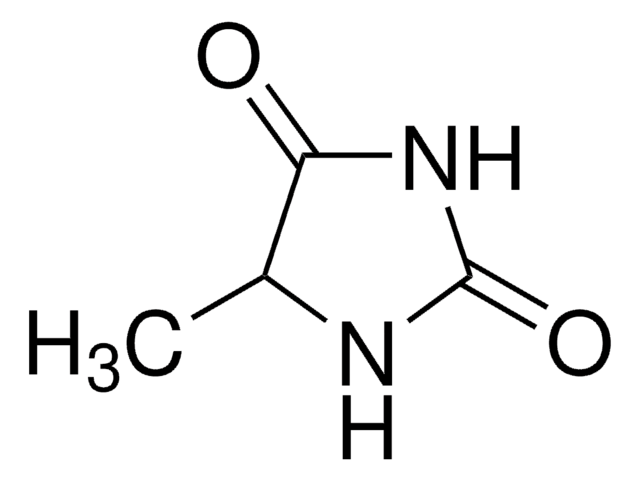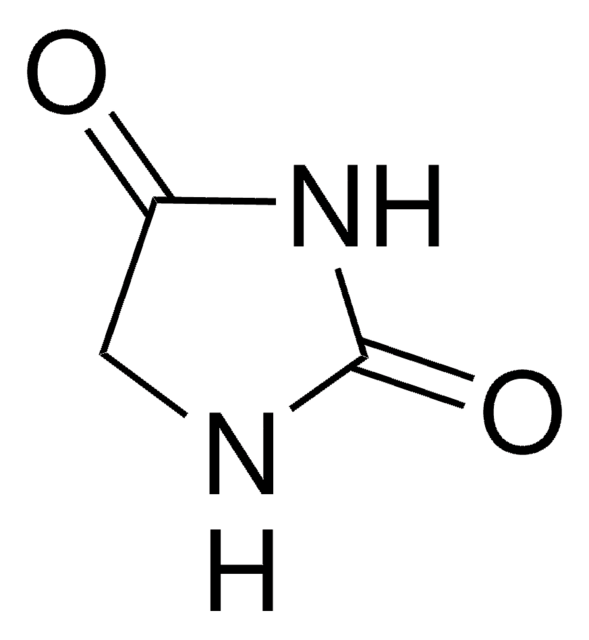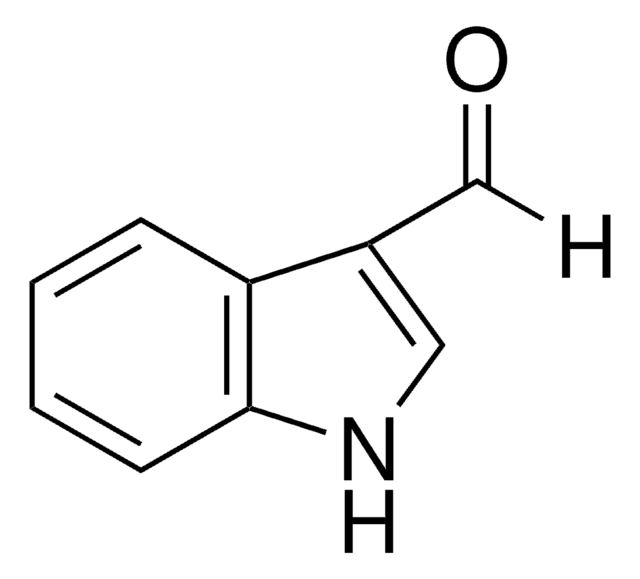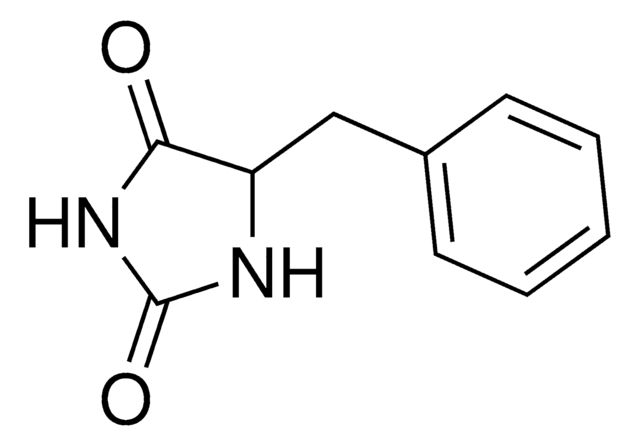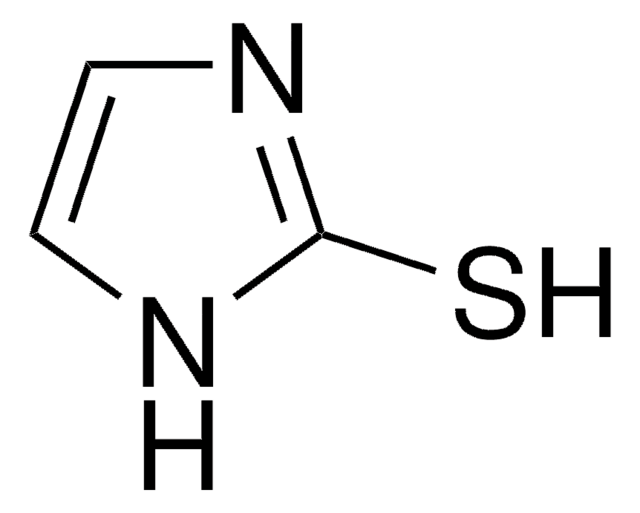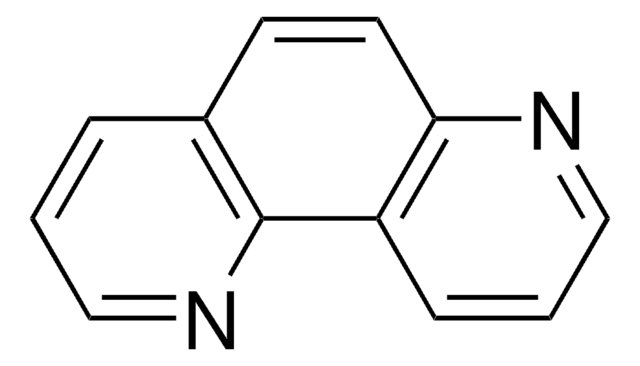M49887
1-Methylhydantoin
97%
Synonyme(s) :
1-Methylimidazolidine-2,4-dione, Dioxy-creatinine, NSC 80560
Se connecterpour consulter vos tarifs contractuels et ceux de votre entreprise/organisme
About This Item
Formule empirique (notation de Hill):
C4H6N2O2
Numéro CAS:
Poids moléculaire :
114.10
Numéro CE :
Numéro MDL:
Code UNSPSC :
12352100
ID de substance PubChem :
Nomenclature NACRES :
NA.22
Produits recommandés
Pureté
97%
Pf
156-157 °C (lit.)
Chaîne SMILES
CN1CC(=O)NC1=O
InChI
1S/C4H6N2O2/c1-6-2-3(7)5-4(6)8/h2H2,1H3,(H,5,7,8)
Clé InChI
RHYBFKMFHLPQPH-UHFFFAOYSA-N
Catégories apparentées
Application
Reactant for organocatalytic tandem three component reactions of aldehyde, alkyl vinyl ketone, and amide
Reactant for synthesis of:
Reactant for synthesis of:
- Selective angiotensin II AT2 receptor agonists with reduced CYP 450 inhibition
- Allosteric glucokinase activators
- Hydantoin derivatives with antiproliferative activity
- Thiohydantoins
- P2X7 receptor antagonists
Code de la classe de stockage
11 - Combustible Solids
Classe de danger pour l'eau (WGK)
WGK 3
Point d'éclair (°F)
Not applicable
Point d'éclair (°C)
Not applicable
Équipement de protection individuelle
Eyeshields, Gloves, type N95 (US)
Faites votre choix parmi les versions les plus récentes :
Déjà en possession de ce produit ?
Retrouvez la documentation relative aux produits que vous avez récemment achetés dans la Bibliothèque de documents.
K Ienaga et al.
Biochimica et biophysica acta, 967(3), 441-443 (1988-12-15)
The metabolic pathway of 1-methylhydantoin (2) via 5-hydroxy-1-methylhydantoin (3), methylparabanic acid (4) and N5-methyloxaluric acid (5) proved to be a major and general one in mammals. Hence the formation of (3), which has not been detected in normal tissue, is
Bo Yang et al.
Renal failure, 29(8), 1025-1029 (2007-12-11)
1-Methylhydantoin is produced by bacterial creatinine deaminase in the intestinal tract of uremic patients and retaken up into the body. The present study was designed to explore the toxic effect of 1-methylhydantoin on renal proximal tubular cells in vitro. HK-2
M W Sundberg et al.
Clinical chemistry, 29(4), 645-649 (1983-04-01)
We developed a thin-film enzymic assay for creatinine that makes use of creatinine iminohydrolase (EC 3.5.4.21) to convert creatinine to N-methylhydantoin and ammonia. The ammonia diffuses through a semipermeable layer and is quantitated by reaction with bromphenol blue. A paired
Hybrid biosensor for clinical and fermentation process control.
I Karube et al.
Annals of the New York Academy of Sciences, 434, 508-511 (1984-01-01)
J M Kim et al.
Biochemical and biophysical research communications, 142(3), 1006-1012 (1987-02-13)
A new enzyme, N-methylhydantoin amidohydrolase, was highly purified from Pseudomonas putida 77: it catalyzes the hydrolysis of N-methylhydantoin to N-carbamoylsarcosine with the concomitant stoichiometric cleavage of ATP to ADP and orthophosphate. The enzyme absolutely requires ATP, MG2+ and K+ for
Notre équipe de scientifiques dispose d'une expérience dans tous les secteurs de la recherche, notamment en sciences de la vie, science des matériaux, synthèse chimique, chromatographie, analyse et dans de nombreux autres domaines..
Contacter notre Service technique